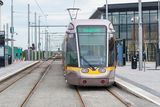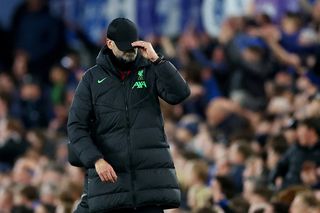‘Restructured’ Leap card will see half-price travel on public transport for under-24s

Young people will be able to avail of half-price travel on public transport under a measure to be announced in the Budget today, the Irish Independent can reveal.
Discounts of 50pc on all fares will apply up to age 24, and to young adult workers as well as those studying at third level. It will be introduced next year.
The cheaper travel coup by Transport Minister Eamon Ryan is designed to get young people back on public transport – and to deter them from buying a car in the first place when in a position to do so.
There will be no restrictions on the travel – via a restructured Leap card – and it will apply to Intercity trains and mainline rail as well as local links, DART, Luas and commuter buses across the State.
It will apply to both peak and off-peak travel.
Not only students, but all young people aged from 19 to the eve of their 24th birthday will be able to avail of the new half-price card.
Currently third-level students alone get 25pc off their travel by special Leap card, capped to a maximum weekly benefit of €30 and other restrictions.
The new Green measure abolishes the cap and any other restraints, allowing even peak travel on mainline rail at half-price for people aged under 24 years.
“This is also about fairer access to public transport,” said a person with insight to the scheme.
“Young workers have been missing out, and are facing many pressures. This will give them some relief on their weekly commute and when venturing wider afield.
Read more
“We would like to encourage people to sample and see just how useful and efficient public transport can be, whether by bus, rail or light rail.”
The National Transport Authority (NTA) will be asked to design the application and grant process whereby young people can provide evidence of age in order to avail of the new half-price youth travel discount. But a source insisted: “They will be able to apply online.”
It meets the demands of many in the Dáil for reform in this area.
Dublin Bus is already reviewing year-long commuter faresaver tickets in the wake of the pandemic, meaning more efficiencies could come on stream for workers who do not meet the new age criteria.
A discount card system is already in place for the under-18s to assist with school travel.
The new half-price card carries the discounts further, with no interruption in coverage. Instead there is now extension for the first time to those young people who are in work and who have chosen to contribute to the economy.
Previously there had been some resentment that students could apply for reduced travel cards via their university or third-level institution, but there was no equivalent consideration for young people taking up employment.
It is envisaged that the new cards will become available from the middle of 2022. “The goal is to get young people into public transport, with the belief that they will stick with it because it meets their needs and more.”
The measure is likely to spawn more third-level “away days” as students migrate for breaks around Ireland – bringing spending to rural areas in turn.
The amount to be allocated for the new initiative is only €25 million in 2022, but is expected to be multiples of this sum in a full year.
While the 24-hour nature of the entitlement may raise question for some about potential overcrowding at peak times, it is pointed out that students’ travel patterns in particular do not comply with nine-to-five hours of normal working.
Meanwhile there will be more money to cater for greater electric vehicle (EV) uptake, although grants will not be increased this time out. There will also be more money for the roll out of charging points around the country.
Join the Irish Independent WhatsApp channel
Stay up to date with all the latest news














